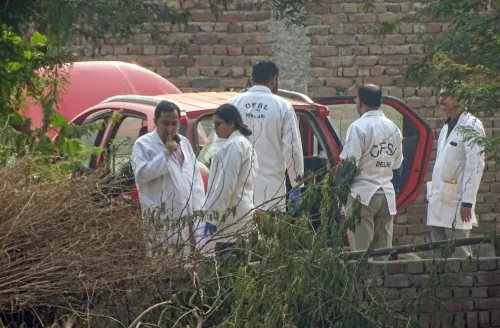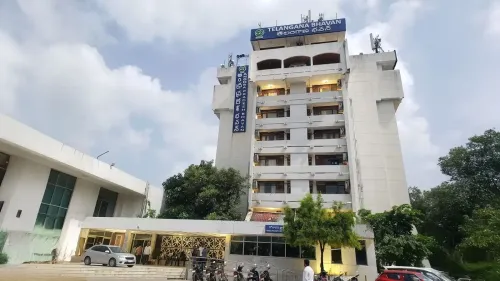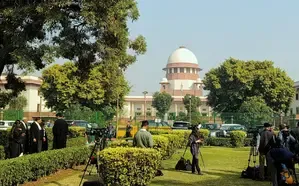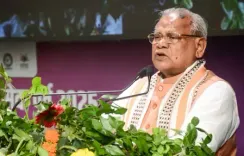Is Sheikh Hasina Facing Death Penalty for Crimes Against Humanity?
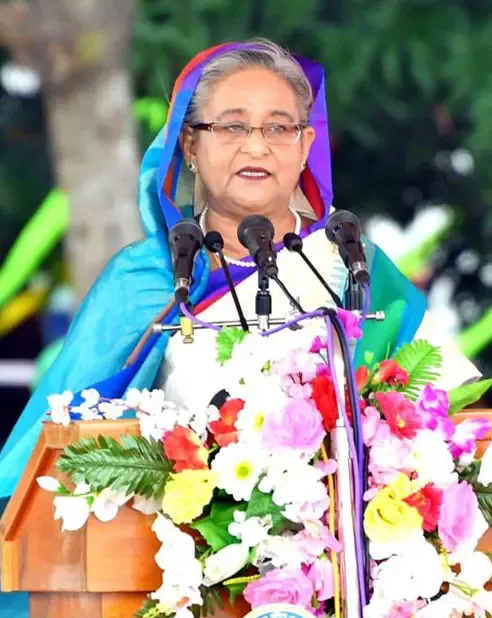
Synopsis
Key Takeaways
- Sheikh Hasina sentenced to death for crimes against humanity.
- Two aides convicted alongside her; one received a lenient sentence.
- Verdict includes extensive documentation of the case.
- Dhaka under heavy security due to unrest following the ruling.
- Impact on Bangladesh's political landscape remains to be seen.
Dhaka, Nov 17 (NationPress) The International Crimes Tribunal (ICT) of Bangladesh announced a death sentence for former Prime Minister Sheikh Hasina on Monday after finding her guilty of crimes against humanity concerning the protests that occurred in July of the previous year.
In addition to Hasina, her two senior associates, former Home Minister Asaduzzaman Khan Kamal and former Inspector General of Police Chowdhury Abdullah Al-Mamun, were also convicted.
While Mamun has received a pardon, the tribunal indicated that due to the severity of the offenses, he would face a lenient sentence.
The awaited sentencing follows a lengthy 453-page verdict that is currently being read in court.
As of now, Hasina continues to defy court orders, remaining outside of the South Asian nation to avoid facing trial. Asaduzzaman is currently a fugitive, whereas Mamun is in custody and has admitted guilt.
Significantly, Mamun has become a state witness, marking a first for the tribunal since its inception in 2010.
The verdict was being broadcast live by Bangladesh Television (BTV) from the ICT courtroom, where the three-member Tribunal-1, led by Justice Md Golam Mortuza Majumder, is delivering the ruling.
The formal charge documents are extensive, totaling 8,747 pages that include references, seized evidence, and a detailed list of victims, according to reports from The Dhaka Tribune.
The prosecution has leveled five charges against the defendants, including failure to prevent murder, which constitutes crimes against humanity under Bangladeshi law. They are pursuing the death penalty should the defendants be found guilty.
Furthermore, prosecutors have requested the tribunal to seize the assets of the three defendants upon conviction and allocate them to the victims' families.
Despite the serious allegations, Hasina has consistently denied all charges against her.
In related developments, Dhaka is experiencing an unprecedented security clampdown following a 'shoot-at-sight order' issued by Dhaka Metropolitan Police (DMP) Commissioner Sheikh Md Sajjat Ali on Sunday evening, targeting those involved in arson and violence in anticipation of the ICT verdict.
A two-day strike organized by Hasina's Awami League on November 16-17 has coincided with rising incidents of violence and arson across the capital.
During recent operations in Narayanganj, at least 21 Awami League leaders and members, who are currently barred from political activities, have been detained, as reported by The Daily Star.


